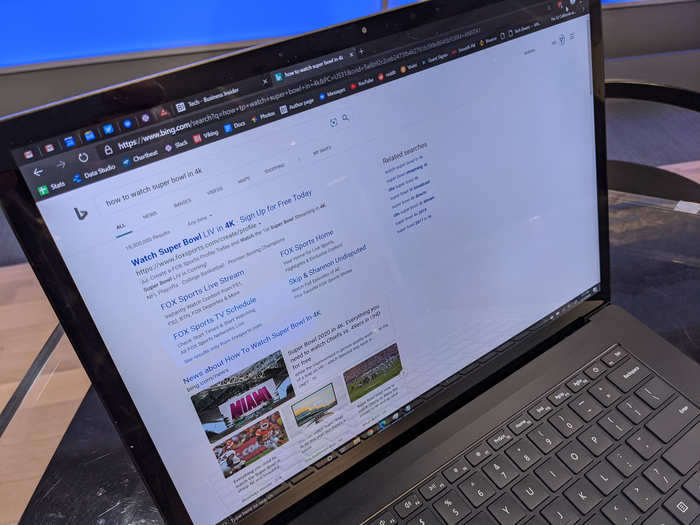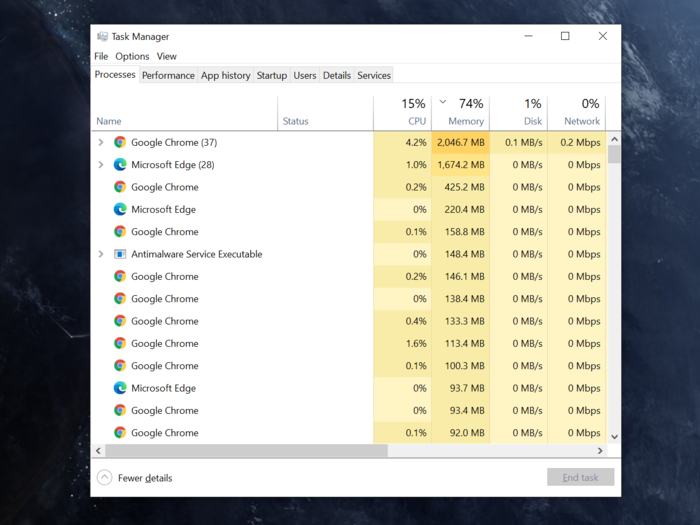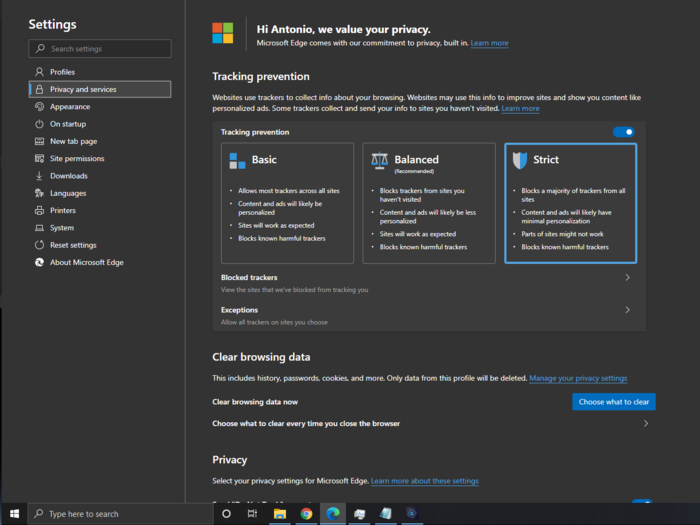- Home
- slideshows
- miscellaneous
- Microsoft's newest internet browser is so good that I forgot I switched from Google Chrome
Microsoft's newest internet browser is so good that I forgot I switched from Google Chrome
I opened up my laptop one day and completely forgot I was using Microsoft's new Edge browser instead of Chrome.

I only realized I was on the new Edge browser when I searched for something in the address bar, and was shown Microsoft's Bing search engine results instead of my usual Google results.

Indeed, I hadn't switched the default browser from Bing to Google yet. In fact, days later, I still haven't switched back to Google's search engine. I haven't had much need to switch yet. I'm keeping an open mind, but I won't be surprised if that day will come.
That bodes well for the new Edge web browser. It looks and feels a lot like Chrome, and switching is painless. After all, it's built on the same web browsing platform, called Chromium, that Google used at the core of Chrome, too.

After the initial setup, my bookmarks toolbar was automatically transferred and looks exactly like it does on Chrome, and I installed my favorite extensions with relative ease. To note, one of the biggest "things" about the new Edge is that it supports Chrome extensions, too, so you get the wide variety of options that previous versions of Edge didn't have.
And perhaps most importantly for a lot of users, Chrome browser extensions are supported in Edge, too.

Any extension you used in Chrome will work in Edge, which is huge news. I couldn't do my work on previous versions of Edge, as I was so reliant on certain extensions to add key features and functionalities to the browser.
With that said, Microsoft needs to work on making it easier to find the extensions you want. Right now, Microsoft places the official Edge extension library as the primary way to get extensions, and some of my extensions aren't available there.
Instead, I need to search for "Chrome web store," and go from there to get the extensions I want. It's a little workaround, but no big deal, and not a deal-breaker. More than anything, it's useful that I can pick any Google Chrome extension I want and start using it with no hassle.
And since using the new Edge browser, I've noticed a couple things I like better than Chrome.

For one, it doesn't use up as much of my computer's precious resources as Chrome does — namely, the RAM that Google's Chrome devours, which leads to slow performance over time. And loading web pages on Edge has been just as fast, if not faster.
Right now, with the exactly same number of tabs (19) and same websites loaded up on both web browsers on Windows 10, Edge is using 1.6 GB of RAM, and Chrome is using 2 GB.
The privacy settings are also a lot simpler to understand, more robust, and better laid out than on Chrome.

Managing privacy on Edge is much easier than it is on Chrome. Edge's privacy settings are well laid out and do a better job of telling you what its doing on the privacy front and how it could affect your experience.
In fact, the privacy settings are so powerful that Edge is tricking sites into thinking that I have an ad blocker.

On the "Strict" privacy setting in Edge, which blocks the majority of trackers on sites, some sites have asked me to disable my ad blocker. The thing is, I don't have an ad blocker installed on Edge. That's impressive.
On Chrome, the closest privacy setting I could find that would be similar to Edge's "Strict" option is blocking third-party cookies, and that didn't seem to have any effect on ads.
Should you switch? Sure! Give it a shot!

In many ways, Edge is more or less a Chrome doppelganger, but with a couple little extras that can plant the seed of consideration to switch. It's worth a shot, if just for the clearer and more robust privacy settings, and reduced impact on your computer's RAM.
And if you're setting up a new Windows 10 computer, the new Edge has what it takes to be your default web browser, rather than just a tool to download Chrome the moment you boot up a new computer.
Further down the line, I wouldn't be surprised if the new Edge gets more little features that build up and sets it apart from Chrome even more, too.
At the same time, Google's ecosystem goes beyond the Chrome web browser. Chrome is linked in some way or the other to my Google account in general, which includes Gmail, Google Maps, Google Calendar, and so on, and all that ties in with the Google stuff on my smartphone. Microsoft's biggest obstacle will be to combat Google's incredible and far-reaching ecosystem.
To that end, Edge is available on Android and iOS, so your computer and smartphone lives don't have to be separate. I'll be checking out Edge on mobile soon to see how Microsoft's ecosystem competes with Google across platforms.
I should note that everyone has a different way of using their web browser of choice, with innumerable little tricks, shortcuts, and customizations that it's almost impossible for my experience to translate perfectly to yours. If you're making too many compromises or uncomfortable changes when checking out Edge, then maybe it's not for you!
Popular Right Now
Popular Keywords
Advertisement